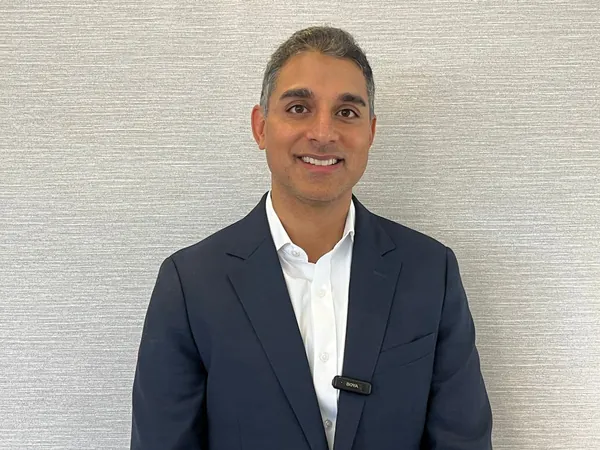
Unraveling Retinal Nonperfusion in Diabetic Retinopathy: Insights from Dr. Yasha S. Modi
2025-05-20
Author: Li
An Exclusive Interview with Dr. Yasha S. Modi
In a recent presentation at the prestigious Retina World Congress 2025, Dr. Yasha S. Modi, associate professor of ophthalmology at NYU Langone Health, shed light on a critical aspect of diabetic retinopathy: retinal nonperfusion. This enlightening discussion focused on the prognostic implications of nonperfusion and its relationship with diabetic retinopathy severity.
Understanding the Importance of Nonperfusion
Dr. Modi emphasized the necessity of assessing retinal leakage and nonperfusion alongside the Diabetic Retinopathy Severity Scale (DRSS), a widely accepted standard for diabetic retinopathy staging. Utilizing ultra-wide field fluorescein angiography (FA), he noted that nonperfusion and leakage pose independent risks for progression to more severe forms of the disease. This understanding is paramount for clinicians aiming to tailor treatment interventions effectively.
Revolutionizing Diagnosis through Advanced Imaging
Reflecting on his journey in ophthalmology, Dr. Modi highlighted the transformative role of advanced imaging technologies in diagnosing diabetic retinopathy. While the ETDRS study from 1991 acknowledged leakage and nonperfusion as risk factors, modern imaging techniques allow for more precise targeting of these areas for treatment, potentially enhancing patient outcomes.
The Role of Anti-VEGF in Managing Nonperfusion
When discussing the impact of anti-VEGF therapies, Dr. Modi revealed intriguing findings from pivotal clinical trials. He pointed out that administering anti-VEGF monthly could help stabilize nonperfusion, contrasting sharply with findings from sham treatments where nonperfusion continued to escalate. However, he cautioned that while treatment can modulate nonperfusion progression, no study has conclusively demonstrated reversal of the condition. This suggests that while anti-VEGF might provide some protective effects, it does not eliminate the underlying issues.
Guidance for Future Ophthalmologists
For residents and fellows aspiring to excel in ophthalmology, Dr. Modi's insights underscore the importance of embracing technological advancements in imaging and understanding their implications for disease management. His message resonates: early intervention and tailored treatment strategies could make a remarkable difference in combating the progression of diabetic retinopathy.
As diabetic retinopathy continues to impact millions globally, leading experts like Dr. Modi are paving the way for enhanced understanding and innovative solutions, making it a vital area of focus for future research and clinical practice.



 Brasil (PT)
Brasil (PT)
 Canada (EN)
Canada (EN)
 Chile (ES)
Chile (ES)
 Česko (CS)
Česko (CS)
 대한민국 (KO)
대한민국 (KO)
 España (ES)
España (ES)
 France (FR)
France (FR)
 Hong Kong (EN)
Hong Kong (EN)
 Italia (IT)
Italia (IT)
 日本 (JA)
日本 (JA)
 Magyarország (HU)
Magyarország (HU)
 Norge (NO)
Norge (NO)
 Polska (PL)
Polska (PL)
 Schweiz (DE)
Schweiz (DE)
 Singapore (EN)
Singapore (EN)
 Sverige (SV)
Sverige (SV)
 Suomi (FI)
Suomi (FI)
 Türkiye (TR)
Türkiye (TR)
 الإمارات العربية المتحدة (AR)
الإمارات العربية المتحدة (AR)